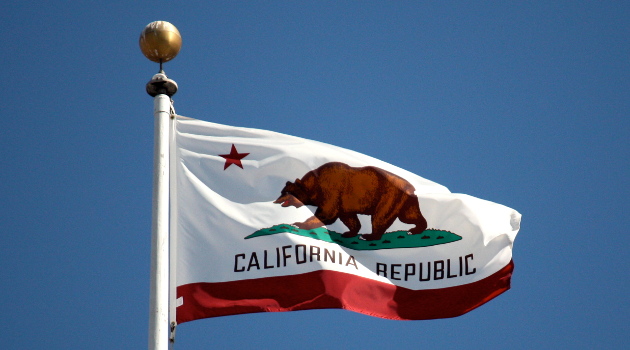From the perspective of lifestyle (factors such as climate, scenery, and recreational opportunities), there’s probably no better state in which to live than California.
But if you want to be an entrepreneur, start a business, and create jobs, the Golden State is one of the worst places in America.
I’ve already written about the state’s punitive tax system. The 13.3 percent tax rate is far higher than any other state. That’s an acceptable burden to rich folks in Silicon Valley  since they amass their wealth in the form of unrealized (and untaxable) capital gains.
since they amass their wealth in the form of unrealized (and untaxable) capital gains.
But it’s a crippling burden for regular business owners.
California also has a very unfriendly regulatory regime, ranking a lowly 48 out of 50 according a comprehensive study.
What does that mean, in practical terms?
Let’s look at a few examples to understand the state’s hostile business environment.
We’ll start with the high-profile case of Elon Musk, who is openly rebelling against government red tape by restarting production in his Tesla factory.
Tesla CEO Elon Musk confirmed Monday he’s flouting county rules by reopening a Northern California plant amid concerns over safety during the coronavirus crisis, tweeting: “I will be on the line with everyone else. If anyone is arrested, I ask that it only be me.”
…Musk tweeted, “Tesla is restarting production today against Alameda County rules. …all other auto companies in US are approved to resume. Only Tesla has been singled out. This is super messed up!” …The county later responded in a statement: “We have notified Tesla that they can only maintain Minimum Basic Operations until we have an approved plan…and we hope that Tesla will likewise comply without further enforcement measures.” …a frustrated Musk wrote that he was filing a lawsuit to halt the local restrictions and predicted relocating Tesla’s Palo Alto, Calif., headquarters to Texas or Nevada.
To be sure, this is a very unusual example, one where the battle is complicated by the very difficult issue of how to deal with a serious virus.
So let’s zoom out and consider other examples that existed well before the pandemic.
Andy Quinlan of the Center for Freedom and Prosperity explains for Townhall that California has a long history of policies that discourage entrepreneurship and job creation.
To climb out of the massive pit the economy has been thrown into, it will take not just the release of workers from their homes, but also entrepreneurs and innovators capable of adapting to a new economic environment. Unfortunately, innovators are often treated very poorly by all levels of government. And the worst offender is arguably California…
Consider last year’s passage of AB 5. It upended California’s gig economy by requiring that contractors be reclassified as employees, even against their will, when certain thresholds were met. The arbitrary caps were set so low that self-employed freelancers have been devastated by a loss of work as many companies suddenly stopped working with California workers. …The state’s regulators are also unfairly attacking an innovative hotel business. OYO Hotels…focuses on the small hotels ignored by the large chains, offering them proprietary technology and marketing assistance to dramatically improve their ability to reach and attract customers, along with capital to ensure their rooms are up to the company’s standards… But California’s regulators have other ideas. They…claim that OYO’s activities make it a franchise, and therefore it was required to seek approval before ever operating in the state.
John Moorlach, a senator in California’s legislature, wrote a column for the Orange County Register about the Golden State’s anti-growth mentality.
If you were a corporate manager looking to build or lease a plant and hire workers, where would you look first? California, with a $13 minimum wage rising to $15 in 2022? …Then there’s the state income tax.
During times of plenty, maybe it’s worthwhile to put up with California’s 13.3% top state personal income tax rate… But during tough times? …If you needed that 13.3 percent to re-invest in your company, instead of going to a poorly run state government, where would you go? …Companies that play by the rules, paying all the taxes and observing every labor regulation, will be at a disadvantage… The cost structure will just be too high. So many of these honest firms will go out of business, join the underground economy or move to Texas. …Every state needs a healthy economy in order to survive. …over-burdening its entrepreneurial sector…becomes an abuse.
Now you know why many people are “voting with their feet” and leaving the state.
Let’s close with my home-made visual that illustrates what red tape means for entrepreneurs.
Yes, there are some entrepreneurs who can make it all the way, but many others don’t have the time, money, energy, or expertise the navigate the entire course.
And others can get through eventually, but only at the cost of shrinking their businesses and hiring fewer workers.
Here’s the bottom line: This isn’t a binary no-regulation-vs-all-regulation choice. The states with the best scores for regulation (the top 5 are Kansas, Nebraska, Idaho, Iowa, and Indiana) have red tape, but it’s a question of degree.
Sensible jurisdictions give entrepreneurs more “breathing room” to start businesses and create jobs. Which is why the scholarly evidence shows that less regulation is good for prosperity.
P.S. The good news is that entrepreneurs can escape California’s red tape by moving across the border. The bad news is that this strategy doesn’t solve the problem of federal rules and mandates.
P.P.S. Since I’m always asked about this comparison, you can review data comparing Texas and California by clicking here, here, here, and here.
P.P.P.S. Here’s my favorite California vs Texas joke.
P.P.P.P.S. Libertarian readers will appreciate the argument for private regulation.


